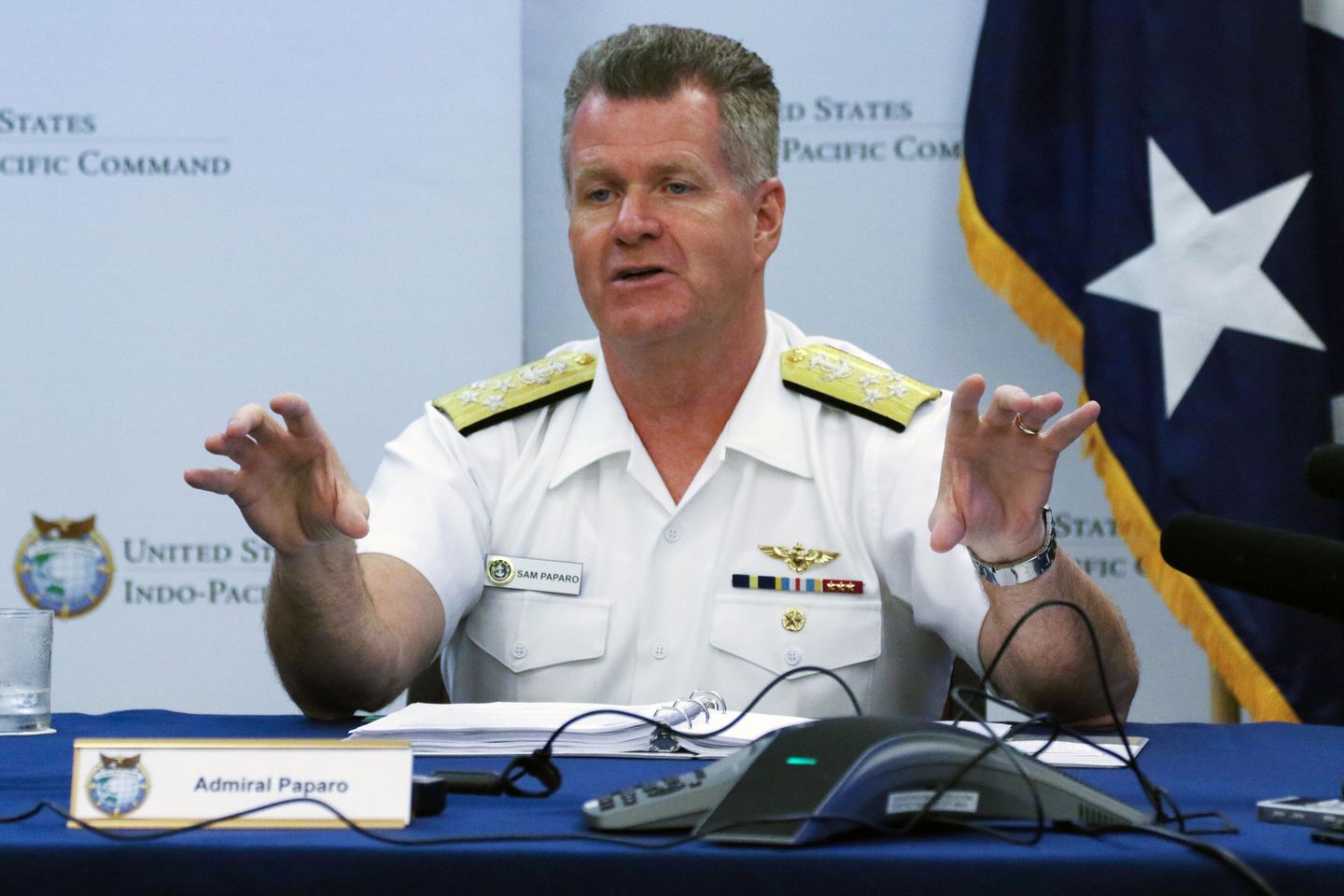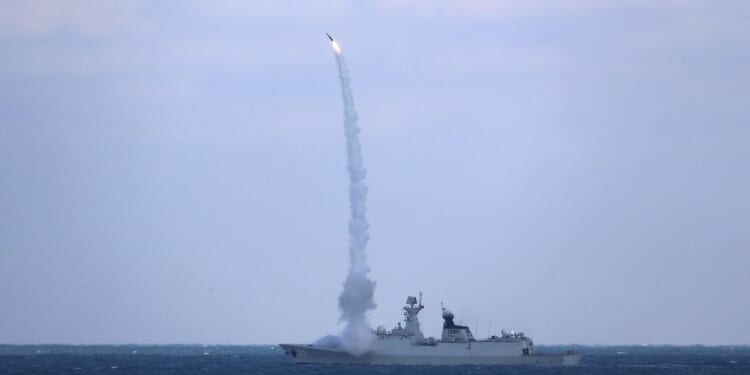
China’s increasingly aggressive military activities in Asia are illegal, coercive and deceptive, according to the new commander of the Indo-Pacific command.
Adm. Samuel J. Paparo, who took over the command on Friday, said in remarks at a change-of-command ceremony in Honolulu that the current military term for Chinese military operations over the past several years does not properly describe the activities.
Military officials have said the Chinese military is involved in “gray zone” warfare — below the level of traditional combat.
The People’s Liberation Army activities have included flying interceptor jets dangerously close to U.S. and allied aircraft, using warships to try and force American and allied vessels out of international waters, and in some cases firing water cannons and underwater sonar beams at allied military ships and personnel.
“Some call it ‘the gray zone,’” Adm. Paparo said. “My friend, [Army Chief of Staff] Gen. [Romeo] Brawner from the Republic of the Philippines has a phrase called ‘ICAD’ and he has renamed gray zone, which sounds otherwise benign and dull, into ICAD — which is illegal, coercive, aggressive, and deceptive.”
The four-star admiral who replaced outgoing commander Adm. John Aquilino, said the world is facing a complex problem set from China’s troubling actions and rapid build-up of military forces.
“We must be ready to answer the PRC’s increasingly intrusive and expansionist claims in the Indo-Pacific region,” he said, using the acronym for People’s Republic of China.
Adm. Paparo said in addition to China, Russia, North Korea and terrorist groups threaten the peace and stability of the region. U.S. military forces and operations, he added, will work together with allies and partners to maintain the free and open Indo-Pacific, a phrase first coined by the late Japanese Prime Minister Shinzo Abe.
“We will safeguard the international order characterized by transparency, cooperation, fair competition, and the rule of law,” Adm. Paparo said. “We’ll bring all to bear in all domains, harnessing and integrating capabilities supporting partnerships to maintain peace and security while safeguarding sovereign rights.”
The U.S., he said, “seeks the peaceful resolution of any crisis or conflict in the region.”
“But make no mistake, … we will be ready to fight any adversary that threatens the peace, security, stability and well-being of the nation and of our allies and partners,” he said.
The new Pacific commander said his command “must act now with a sense of urgency,” reflecting growing concerns about Chinese designs for the use of military force to take over Taiwan.
Adm. Paparo said as commander he plans to build on the policies of his two immediate predecessors, Adm. Philip Davidson and Adm. Aquilino, to regain the advantage and seize initiatives in the region.
“And now onward to prevail,” he said.
The ceremony was attended by senior defense and military officials, including Defense Secretary Lloyd Austin and Navy Secretary Carlos Del Toro. Defense ministers from Australia and the Philippines and the heads of state from the Federated States of Micronesia and the Republic of Palau also took part.
Mr. Austin told the assembled guests at a pier overlooking Pearl Harbor that the Indo-Pacific Command is “at the heart of American security in the 21st century.” He praised Adm. Paparo as “exactly the right leader for this moment and this mission.”
Adm. Paparo takes over as the senior commander after leading the Navy’s Pacific Fleet for three years.

